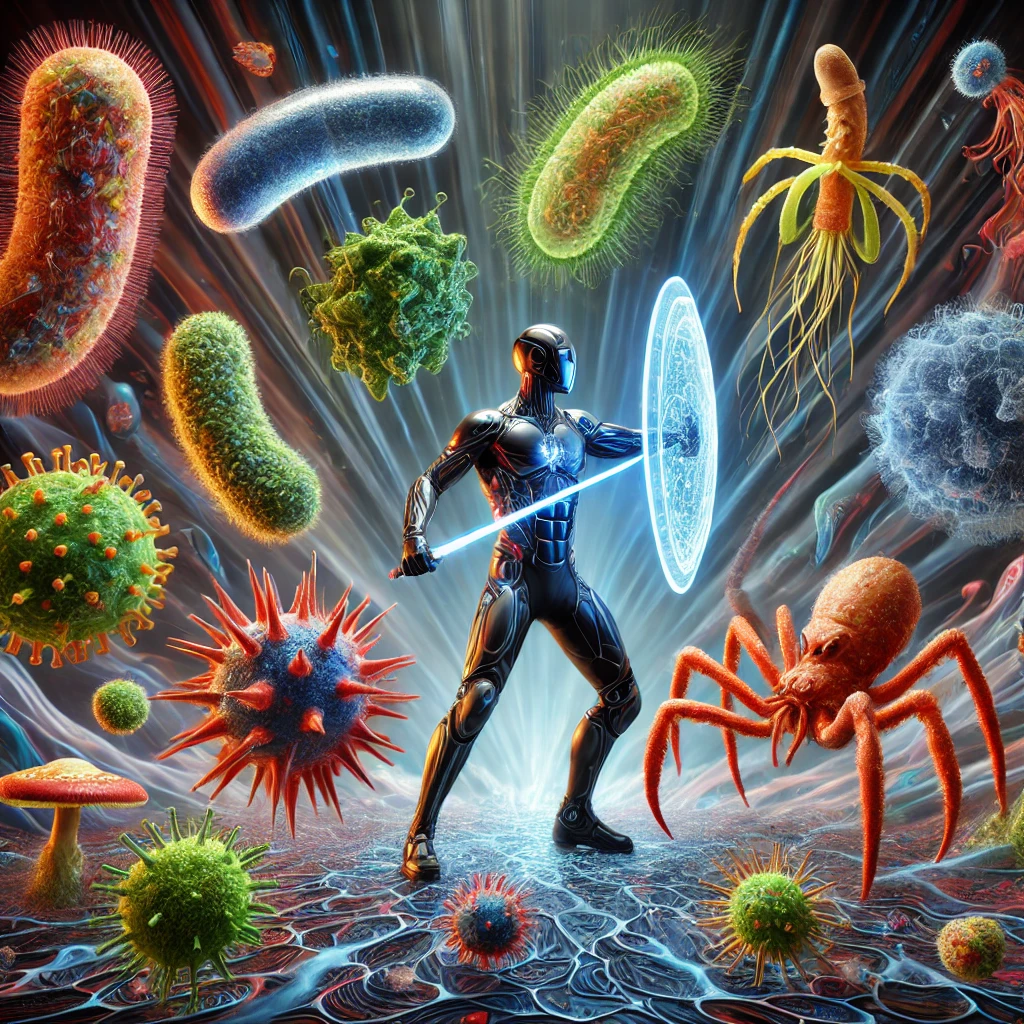Infections remain one of the most common health challenges facing people worldwide. From common colds to more serious bacterial infections, understanding how to prevent and treat these conditions is crucial for maintaining optimal health. This comprehensive guide explores the nature of infections, preventive measures, and treatment options to help you stay healthy and recover quickly when illness strikes.
Understanding Infections
An infection occurs when harmful microorganisms – such as bacteria, viruses, fungi, or parasites – enter the body and begin multiplying. These pathogens can disrupt normal bodily functions and trigger the immune system’s response, leading to various symptoms and health complications.
Types of Infections
Bacterial Infections
Bacterial infections are caused by microscopic organisms that can multiply rapidly under the right conditions. Common bacterial infections include strep throat, urinary tract infections (UTIs), and some forms of pneumonia. While many bacteria are actually beneficial to human health, pathogenic bacteria can cause serious illness and often require antibiotic treatment.
Viral Infections
Viruses are even smaller than bacteria and can only reproduce inside the cells of other organisms. Common viral infections include the common cold, flu, COVID-19, and chickenpox. Most viral infections must run their course as antibiotics are ineffective against them, though antiviral medications exist for some specific conditions.
Fungal Infections
Fungal infections can affect various parts of the body, particularly the skin, nails, and mucous membranes. Common examples include athlete’s foot, ringworm, and candida infections. These infections often thrive in warm, moist environments and may require antifungal medications for treatment.
Parasitic Infections
Parasites are organisms that live on or inside a host organism, deriving nutrients at the host’s expense. Common parasitic infections include malaria, giardiasis, and pinworms. Treatment typically involves specific antiparasitic medications.
Prevention Strategies for Infections
Personal Hygiene
Personal hygiene forms the first line of defense against infections. Key practices include:
- Regular handwashing with soap and water for at least 20 seconds, especially before eating, after using the bathroom, and when hands are visibly dirty
- Using alcohol-based hand sanitizers when soap and water aren’t available
- Keeping nails clean and trimmed
- Showering regularly, particularly after excessive sweating or exposure to dirty environments
- Maintaining good oral hygiene through regular brushing and flossing
Environmental Hygiene
Creating and maintaining a clean environment significantly reduces infection risks:
- Regular cleaning and disinfection of frequently touched surfaces
- Proper ventilation of indoor spaces
- Regular washing of bedding and towels
- Appropriate food storage and handling
- Proper waste disposal and management
Strengthening the Immune System
A robust immune system provides natural protection against infections:
- Maintain a balanced diet rich in fruits, vegetables, and whole grains
- Get adequate sleep (7-9 hours for adults)
- Exercise regularly
- Manage stress through relaxation techniques or meditation
- Stay hydrated by drinking plenty of water
- Consider appropriate supplements after consulting healthcare providers
Vaccination
Vaccines represent one of the most effective ways to prevent specific infections:
- Keep up with recommended vaccination schedules
- Get annual flu shots
- Stay current with boosters and new vaccines as recommended by health authorities
- Maintain accurate vaccination records
Treatment Approaches for Infections
Early Recognition
Identifying infections early can lead to more effective treatment. Common signs include:
- Fever or elevated body temperature
- Fatigue and weakness
- Local pain or discomfort
- Redness, swelling, or warmth at infection sites
- Changes in bodily functions or secretions
- Unexplained weight loss or gain
Medical Intervention
When infections occur, appropriate medical care is essential:
Professional Diagnosis
- Seek medical attention when symptoms are severe or persistent
- Provide accurate information about symptoms and their timeline
- Undergo recommended tests for proper diagnosis
- Follow up as advised by healthcare providers
Medication Management
- Take prescribed medications exactly as directed
- Complete full courses of antibiotics when prescribed
- Monitor for side effects and report concerns promptly
- Avoid self-medication, particularly with antibiotics
Supportive Care
Supporting the body’s natural healing processes is crucial:
- Get plenty of rest to allow the body to fight infection
- Stay hydrated by drinking adequate fluids
- Maintain good nutrition even when appetite is reduced
- Use appropriate over-the-counter medications for symptom relief
- Consider natural remedies that complement medical treatment
Special Considerations for Infections
High-Risk Populations
Some individuals require extra precautions against infections:
- Old age people
- Young children
- Pregnant women
- People with chronic diseases
- Immunocompromised individuals
- Healthcare workers
Antibiotic Resistance
The growing concern of antibiotic resistance demands attention:
- Only use antibiotics when prescribed by healthcare providers
- Never share antibiotics or save them for future use
- Complete prescribed courses of antibiotics
- Support antibiotic stewardship programs
Travel Considerations
When traveling, additional precautions may be necessary:
- Research destination-specific health risks
- Get recommended vaccinations before travel
- Pack appropriate medical supplies
- Be cautious with food and water consumption
- Carry relevant medical documentation
When to Seek Emergency Care
Certain symptoms warrant immediate medical attention:
- High fever that doesn’t respond to medication
- Difficulty breathing
- Severe pain
- Mental confusion
- Signs of sepsis
- Rapid spreading of infection
- Severe allergic reactions to medications
Future Perspectives for Infections
The field of infection prevention and treatment continues to evolve:
- New vaccine development
- Advanced diagnostic techniques
- Novel treatment approaches
- Improved understanding of the human microbiome
- Enhanced infection control protocols
Conclusion
Infections remain a significant health concern, but through proper prevention strategies and appropriate treatment approaches, their impact can be minimized. Stay informed about best practices, maintain good hygiene, and don’t hesitate to seek professional medical care when needed.
Disclaimer: This article is intended for informational purposes only and should not be considered medical advice. The information provided is based on current medical knowledge and best practices but may not be comprehensive or suitable for all situations. Always consult qualified healthcare professionals for personalized medical advice, diagnosis, and treatment options. The author and publisher are not responsible for any adverse effects or consequences resulting from the use of any suggestions, preparations, or procedures described in this article.
You may find worth reading
Understand digestive disorders
Learn About the Best Precautions and Cures for Arthritis
Discover insights about insomnia
Natural Ways to Support Healthy Blood Pressure: A Comprehensive Guide
Safety Tips: What Are The Best Ways To Avoid Injuries?
Now its your turn. Post your valuable opinion about this article in the comments section below. We would love to hear from you.
You may subscribe to our newsletter. To do so you just need to fill up the form below.







